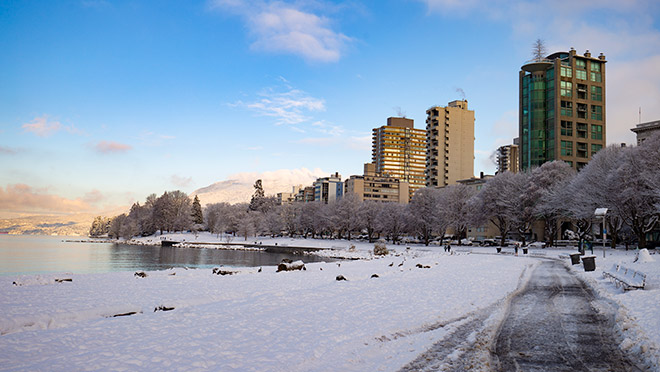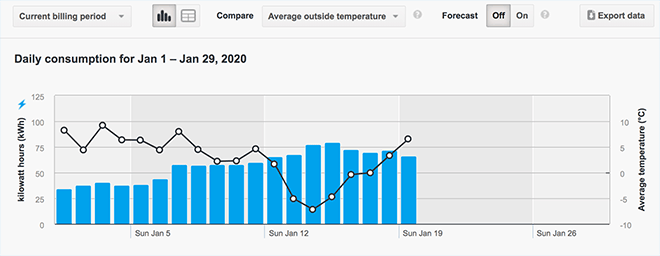How cold was it? B.C. set an electricity use record in mid-January

If you noticed a spike in energy use around January 13, you're not alone
The cold snap that saw even Vancouver temperatures plummet to as low as -8°C in mid-January led to a record-breaking peak for hourly electricity demand for BC Hydro. On January 13, B.C.-wide consumption peaked at 10,302 megawatts.
That beat the previous record set on January 3, 2017, when electricity peaked at 10,194 megawatts. And if you think it's been awhile since the south coast of B.C. in particular was that cold, you'd be right. Environment Canada meteorologist Matt McDonald told CTV that it's been more than a decade since temperatures were that low.
"Going back to 2008, actually – 12 years ago is the last time we saw air this cold in the Lower Mainland," said McDonald.
MyHydro tracking of a Vancouver resident's electricity use for early to mid-January employs the "average outside temperature" comparison to show spikes in energy use related to the coldest days.

Go online and use MyHydro to check your energy use in mid-January
This is a great time to use MyHydro tools on bchydro.com to see how much low temperatures drive electricity use in your home. Log in to MyHydro, pull up the graph of energy use in your home for January and toggle the "comparison" tool to plot against outside temperature. It can be especially noticeable for those whose homes are heated by electricity, in particular, as it's the cold days that tend to drive your BC Hydro bill in winter.
BC Hydro records the highest demand for electricity on weekday evenings when British Columbians come home, turn up the heat, switch on the lights, do laundry and make dinner. Residential electricity can increase, on average, by 88% in the colder, darker, winter months. This can lead to higher heating costs for customers.
Consider grabbing a sweater and slippers on colder days and using the following rules around where to set the thermostat to reduce your electricity use:
- 16°C when sleeping or away from home;
- 21°C when relaxing, watching TV; and,
- 18°C when doing housework or cleaning.
It's also a good idea to avoid cranking up the thermostat, which doesn't heat your home any faster than turning it up a degree or two at a time. Also look at draftproofing your windows and doors if you haven't already.
Here are some other great resources and videos with tips on how to reduce your electricity use in the winter months:
- BC Hydro's Dave delivers three ways to save on home energy (videos)
- Winter home heating tips
- How to make our baseboard heating more efficient (video)
- How MyHydro can help you find ways to save energy (video)